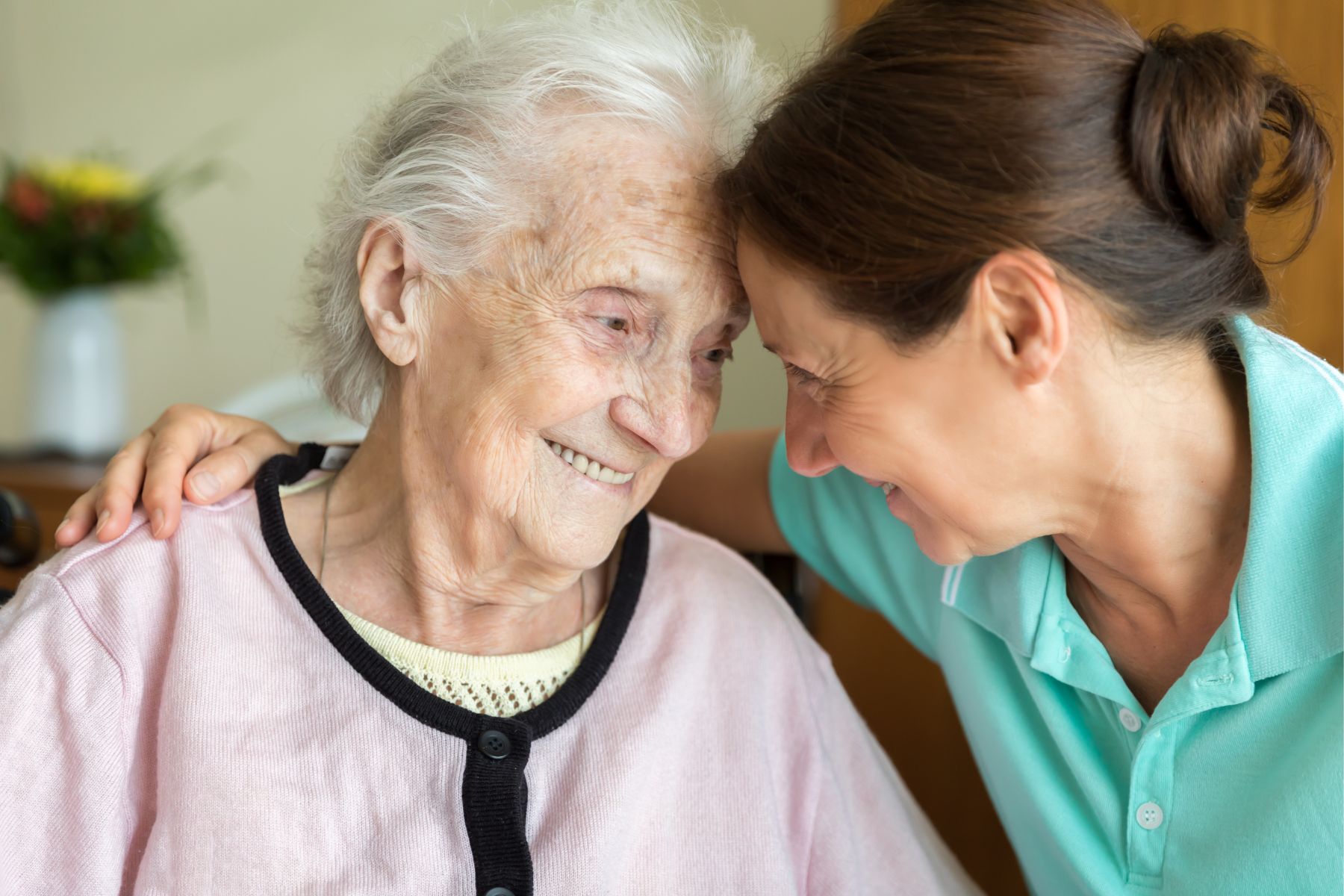Dementia Patient and Caregiver Support
Caring for patients with Alzheimer’s and other forms of dementia may bring uncertainty regarding disease progression and care, making it difficult to recognize when they may benefit from hospice care. Our team of experts is here to support you.
Call us when you observe these signs and symptoms of late-stage Alzheimer’s disease or dementia in your loved one:
- Incontinence, intermittent or constant
- Weakness
- Sleeping more
- Talking less
- Experiences changes in physical abilities, including walking, sitting, and holding their head up
- Increase in falls
- Becoming more frail
- Loss of appetite and/or weight loss
- Trouble swallowing or eating
- Unable to correctly use or understand words
- Recurrent or intractable infections
- Increasing ER visits, hospitalizations, and/or physician visits related to disease progression
Call us when you observe these signs and symptoms of late-stage Alzheimer’s disease or dementia in your loved one:
- Incontinence, intermittent or constant
- Weakness
- Sleeping more
- Talking less
- Experiences changes in physical abilities, including walking, sitting, and holding their head up
- Increase in falls
- Becoming more frail
- Loss of appetite and/or weight loss
- Trouble swallowing or eating
- Unable to correctly use or understand words
- Recurrent or intractable infections
- Increasing ER visits, hospitalizations, and/or physician visits related to disease progression
Patients may also have had one or more of the following in the past 12 months:
- Aspiration pneumonia
- Kidney infection
- Septicemia (Blood Infection)
- Bedsores
- Recurrent Fever
- Inability to maintain sufficient fluid and calorie intake with 10% weight loss during the previous 6 months
Our staff’s holistic approach honors our patients’ wishes, maximizes their comfort, and supports families, and caregivers. The advanced dementia patient has an increased dependence on family and loved ones; hospice can provide much-needed support for the caregiver.
- Our doctors work with your loved one’s own doctor or specialist to manage care and make house calls as needed.
- Registered Nurses skillfully evaluate your loved one, coordinate care with your doctor and the hospice team, and teach you how to care for your loved one.
- Certified Nursing Assistants help with bathing, dressing, feeding, grooming, light housekeeping, and other necessities.
- Social Workers provide emotional support, family counseling, advance care planning, and connections to other resources.
- Spiritual Counselors provide non-denominational spiritual guidance, a calming presence, and emotional support for the whole family.
- Trained volunteers offer friendship and comfort.
- Physical, occupational, speech, and music therapy, along with pet visits help your loved one maintain function and find ways to engage in life.
- Medical equipment, oxygen, and supplies are delivered right to your door.
- Our Coastal Hospice staff is available 24 hours a day, 7 days a week.
If you are caring for someone with late-stage Alzheimer’s or dementia, you do not have to do it alone. To find out if your loved one can benefit from hospice services, call our direct referral line at 410-742-7878.
Dementia Patient and Caregiver Resource Guide
Programs
We have a wide range of service offerings to fit your specific needs. Learn more about all of the programs we offer.
FAQs
You have questions? We have answers! Start here to learn more.
Volunteer
Our volunteers are critical to providing excellent care. Interested in making a difference? Find out more today.
Contact Us
Have a question for Coastal Hospice? We are here to help. Visit our contact page to reach out to us and get your questions answered by our staff.

